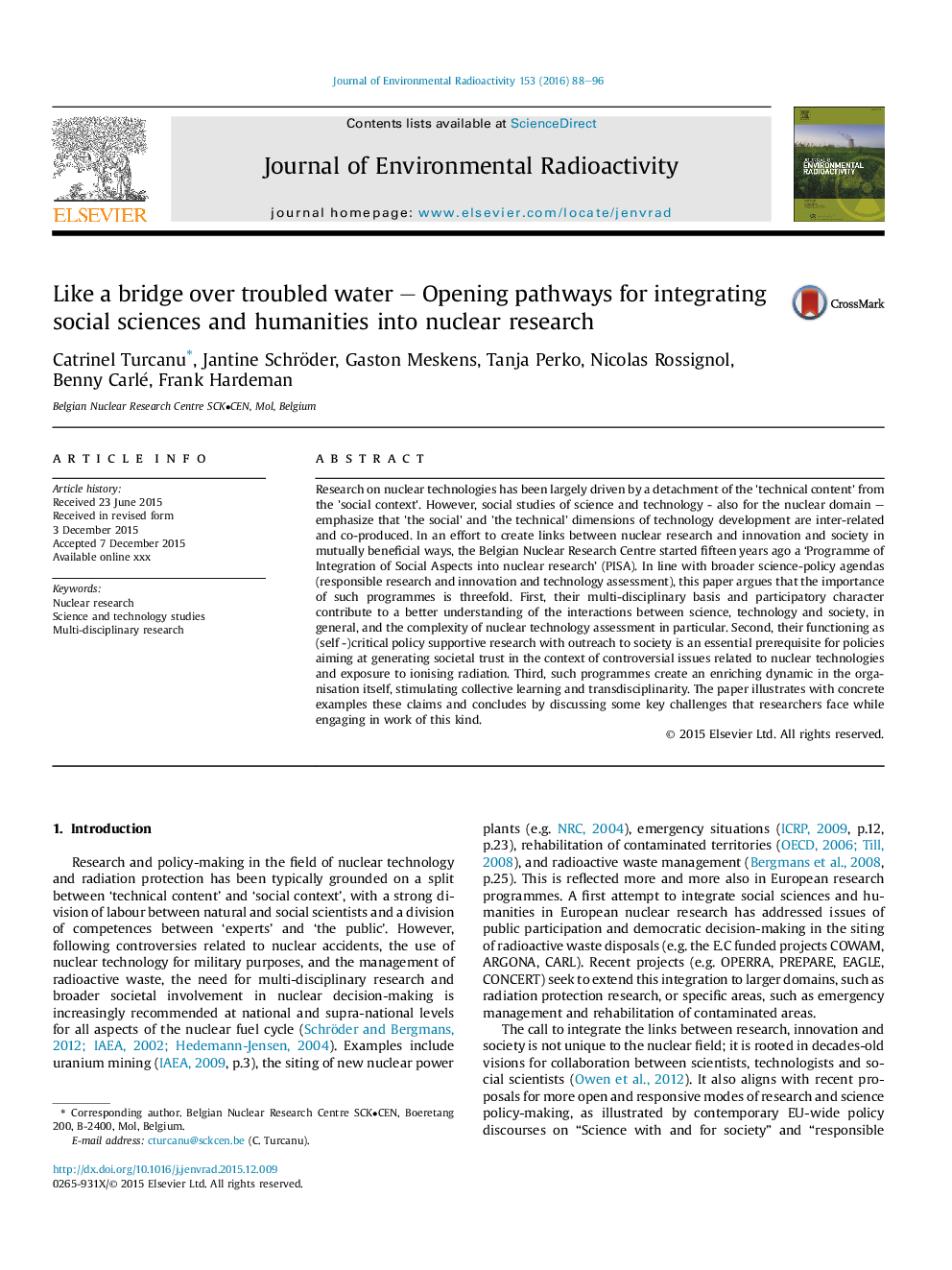| Article ID | Journal | Published Year | Pages | File Type |
|---|---|---|---|---|
| 8082005 | Journal of Environmental Radioactivity | 2016 | 9 Pages |
Abstract
Research on nuclear technologies has been largely driven by a detachment of the 'technical content' from the 'social context'. However, social studies of science and technology - also for the nuclear domain - emphasize that 'the social' and 'the technical' dimensions of technology development are inter-related and co-produced. In an effort to create links between nuclear research and innovation and society in mutually beneficial ways, the Belgian Nuclear Research Centre started fifteen years ago a 'Programme of Integration of Social Aspects into nuclear research' (PISA). In line with broader science-policy agendas (responsible research and innovation and technology assessment), this paper argues that the importance of such programmes is threefold. First, their multi-disciplinary basis and participatory character contribute to a better understanding of the interactions between science, technology and society, in general, and the complexity of nuclear technology assessment in particular. Second, their functioning as (self -)critical policy supportive research with outreach to society is an essential prerequisite for policies aiming at generating societal trust in the context of controversial issues related to nuclear technologies and exposure to ionising radiation. Third, such programmes create an enriching dynamic in the organisation itself, stimulating collective learning and transdisciplinarity. The paper illustrates with concrete examples these claims and concludes by discussing some key challenges that researchers face while engaging in work of this kind.
Related Topics
Physical Sciences and Engineering
Energy
Nuclear Energy and Engineering
Authors
Catrinel Turcanu, Jantine Schröder, Gaston Meskens, Tanja Perko, Nicolas Rossignol, Benny Carlé, Frank Hardeman,
